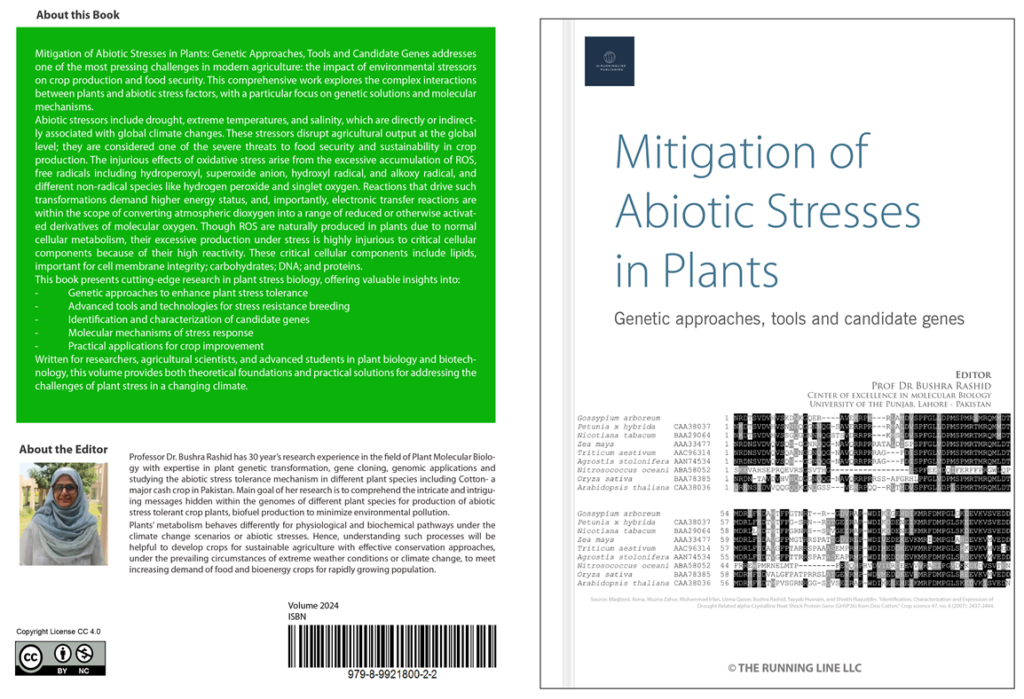
Mitigation of Abiotic Stresses in Plants
Genetic approaches, tools and candidate genes
Edited by
Prof. Dr. Bushra Rashid
Release Date: October, 2024
Copyright: 2024
Pages: 121
ISBN: 979-8-9921800-2-2
Book Description
Mitigation of Abiotic Stresses in Plants: Genetic Approaches, Tools and Candidate Genes addresses one of the most pressing challenges in modern agriculture: the impact of environmental stressors on crop production and food security. This comprehensive work explores the complex interactions between plants and abiotic stress factors, with a particular focus on genetic solutions and molecular mechanisms.
Abiotic stressors include drought, extreme temperatures, and salinity, which are directly or indirectly associated with global climate changes. These stressors disrupt agricultural output at the global level; they are considered one of the severe threats to food security and sustainability in crop production. The injurious effects of oxidative stress arise from the excessive accumulation of ROS, free radicals including hydroperoxyl, superoxide anion, hydroxyl radical, and alkoxy radical, and different non-radical species like hydrogen peroxide and singlet oxygen. Reactions that drive such transformations demand higher energy status, and, importantly, electronic transfer reactions are within the scope of converting atmospheric dioxygen into a range of reduced or otherwise activated derivatives of molecular oxygen. Though ROS are naturally produced in plants due to normal cellular metabolism, their excessive production under stress is highly injurious to critical cellular components because of their high reactivity. These critical cellular components include lipids, important for cell membrane integrity; carbohydrates; DNA; and proteins.
This book presents cutting-edge research in plant stress biology, offering valuable insights into:
- Genetic approaches to enhance plant stress tolerance
- Advanced tools and technologies for stress resistance breeding
- Identification and characterization of candidate genes
- Molecular mechanisms of stress response
- Practical applications for crop improvement
Written for researchers, agricultural scientists, and advanced students in plant biology and biotechnology, this volume provides both theoretical foundations and practical solutions for addressing the challenges of plant stress in a changing climate.
About Editor
Prof. Dr. Bushra Rashid has 30 year’s research experience in the field of Plant Molecular Biology with expertise in plant genetic transformation, gene cloning, genomic applications and studying the abiotic stress tolerance mechanism in different plant species including Cotton- a major cash crop in Pakistan. Main goal of her research is to comprehend the intricate and intriguing messages hidden within the genomes of different plant species for production of abiotic stress tolerant crop plants, biofuel production to minimize environmental pollution.
Plants’ metabolism behaves differently for physiological and biochemical pathways under the climate change scenarios or abiotic stresses. Hence, understanding such processes will be helpful to develop crops for sustainable agriculture with effective conservation approaches, under the prevailing circumstances of extreme weather conditions or climate change, to meet increasing demand of food and bioenergy crops for rapidly growing population.
